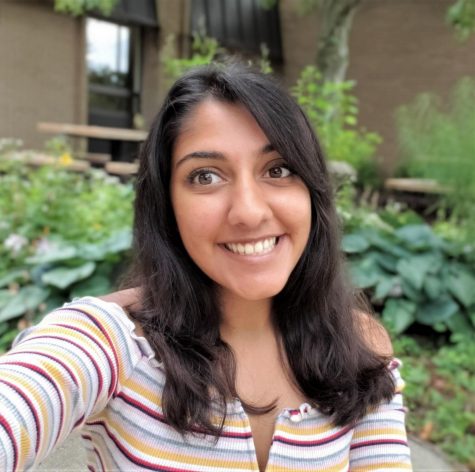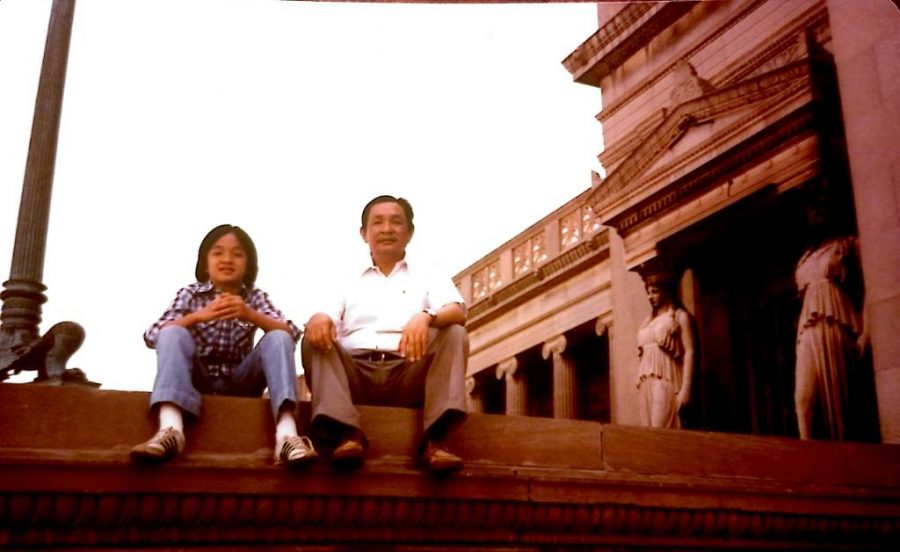Stepping into a new country: first generation Americans face unique experiences in assimilating to new culture
70.9 million children under the age of 17 in the United States identify with the stars, stripes, and banners of two different countries.
The children of immigrants face the the rush and the fears of immigration first hand, which come with mixing two different lifestyles and ideals: the ideals from the parents who have grown up in another country, and the ideals the students are surrounded by in an American society.
First generation American
“[My parents have taught me] that taking risks can pay off and that if you work hard, even when you are surrounded [with] something unfamiliar and scarily new, it will work out in the end,” said junior, Tiffany Yen, whose parents immigrated from China. “Some struggles were the language and the overall culture of a whole new country, but my mom and dad [eventually] adapted.”
But adapting did not mean leaving behind their culture, said Yen, whose family “speaks a mixture of Chinese and English [at home], and have Chinese decorations around, we cook a lot of Chinese food, and we celebrate [different] Chinese holidays.”
Embracing one’s culture, though, can sometimes be hard when living in a community that isn’t ethnically diverse. Rachel Lee, sophomore, knows this first hand.
“I remember once in kindergarten I came dressed in my traditional Korean dress and there were a lot of questions and not exactly teasing, but ignorance to a point. As a child, I didn’t understand why they didn’t [get it] and, now I sympathize that not everyone knows the culture of a country half the way across the world. But it was a mind blowing experience as a child,” said the Korean-American whose parents immigrated to America.
The way Lee has channeled her difficulties with other people into positive thoughts, has proven to be a defining characteristic of who she is today, she says.
“When I do encounter challenges from the possible ignorance of other people, it doesn’t stop me from being who I am and often it helps me define who I am as a Korean American,” Lee said. “I often get annoyed at the racial stereotypes like ‘all Asians are always smart,’ and it’s frustrating,” Lee said. “If I were to earn a good grade on a project or test, I’ve heard so many times slightly offensive things like, ‘oh it’s because you’re Asian’ or ‘I wish I was Asian so I could get good grades,’ and it’s very frustrating because I know I’ve earned this grade but people think it’s my race that affected it not my hard work.”
An immigrant experience
According to cis.org, 21% of the US population speaks a language other than English at home. Kamil Becdach, a sophomore who moved to the United States from Ecuador during his elementary years, is part of that group. Becdach moved here in 6th grade and faced hardships in his new country.
“It was hard for me to communicate with people, even though I have spoken English since I was born because my parents lived here when they were kids and they learned and experienced what it is like to live here,” Becdach said. “School was especially hard to adjust to, since it is a totally different system than in Ecuador. I needed help in a couple classes like literature at the start, but after a couple of months I got used to it by making new friends and learning how to deal with it and I ended up being okay.”
Being a far away from his family also gave Becdach a feeling of isolation, due to the lack of proximity with the people he had grown up with.
“The biggest difference in Ecuador was probably family. All my family is in Ecuador and I grew up being used to being around then a lot, almost every day if not every weekend,” Becdach said. “It was tough at the beginning when I moved here since I had that sense of separation from them, but after a couple of months, friends ‘took their place’ and I have some friends that I can now call family.”
But while Becdach has overcome the feeling of isolation, leaving family and home is something immoral at don’t easily forget, especially for those forced to flee their native countries.
An LZ student’s dad has his own story to share of his experiences fleeing from the once war torn country, Vietnam.
“I was 13 when I came [to the United States of America]. [We were] fleeing from the oppressed communist government [in Vietnam],” said freshman, Ashley Tran’s father, Khan Tran, about his immigration. “We had no one to help us, we were lost at sea, taken in by a foreign country into refugee camps, and finally we came to America with no real knowledge of the society we were coming into.”
Along with feeling alienated, starting a new life in a new country was not easy, according to Tran.
Although Tran immigrated in 1980, according to rescue.com, in 2016, 13000 refugees came to the US from East Asia to escape war torn countries. Tran says the experience was hard but worth it.
“We had to struggle through the basic necessities to make it in America, from simple materialistic things we take for granted, to social things in a sense that people would discriminate against us,” Tran said. “However there would be some people along the way to help us. Overall it’s a good experience that makes me a better person.”

After being in the journalism program for three years, Parul will be starting this year as a senior! Outside of the journalism lab, you can find her playing...

As a senior, this is Sreelikhi's third year on staff and second year as the Spotlight Editor. She is a member of the Varsity Tennis team, a member of the...

